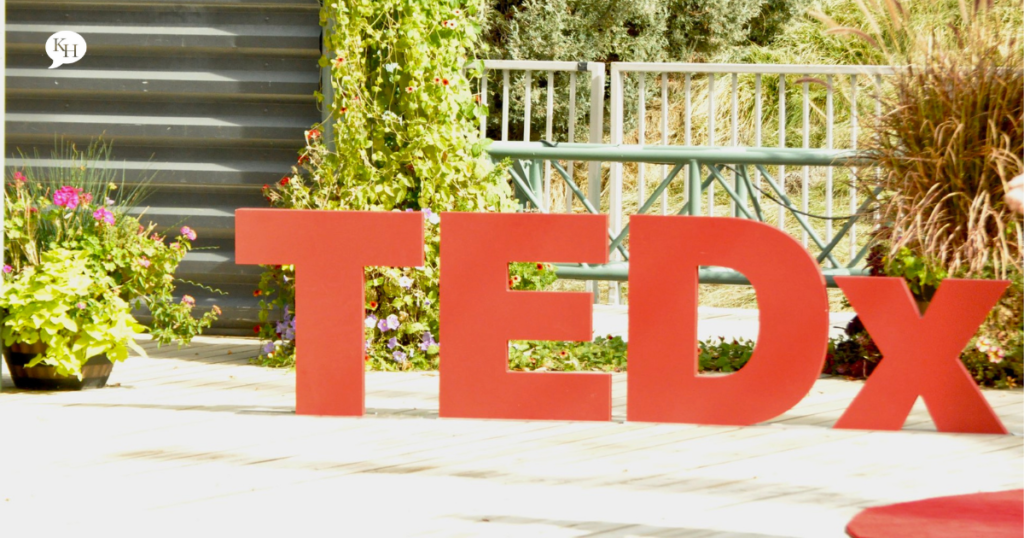How to improve your odds of being selected for a TEDx talk

After working with the TEDxBoise program for five years (and consulting with other TEDx programs), I’m often asked how one gets an opportunity to grace the famous red dot.
I was recently interviewed by the Nonfiction Authors Association on exactly this topic. They’ve graciously made the podcast available to my audience for free; you can listen to that here.
There are a few points from the interview that merit elaboration and emphasis, so here are some insider tips to help you chart a course to giving a TEDx talk:
Who can give a TEDx talk—and what isn’t required to be selected
Herein lies the biggest misconception. One that’s led to frustration for so many applicants. If you take nothing else away from this post, let it be this: TEDx isn’t a platform for professional speakers. Sure, some of those who present on the TED and TEDx stage(s) do speak for a living, but that isn’t the aim of any TED-related event or of a TED-style talk. This stage is meant for ideas—not speakers. The mission of TED to “spread ideas” is the guiding principle of speaker selection at every TEDx event. So much so that our program doesn’t call for speakers; instead we call for ideas, as you can see on this call from last year.
Your speaking ability is not a determining factor in being selected; TEDx programs are required to support their speakers on their journey to the stage. (Hence my role with the organization.) Plus, you’re not allowed to promote or sell from the TEDx stage so don’t look at speaking as an opportunity to advertise your book or business; event organizers can smell this a mile away and are obligated to turn you down. (More on that in the rules linked below.)
How TEDx speakers are selected and how to improve your odds
Every TEDx program is run by a committee under license from TED. We all operate by their guidelines yet have latitude within those guidelines to curate a speaker slate. Without knowing the process any given program uses, there’s no way to optimize your application for certainty—especially since you don’t know what the other applicants will pitch. The key ingredient, however, is ensuring you have an idea and that it’s new (or at least is a fresh take on a familiar idea).
That means inspirational talks won’t usually make the cut. (We see an enormous influx of applicants who want to tell their stories of resilience every year and have historically selected none of them because they’re not—at their core—ideas. We love hearing the stories but they’re not a good fit for the TEDx brand.)
Do the research: has a talk on your topic been given already? If so, how would yours be different?
What does it take—really take—to give a TEDx talk?
Most TEDx speakers view their time on the red dot as being the opportunity of a lifetime, simply because of the extraordinary reach. My speakers’ talks have been viewed over 2.5 million times and several have been featured on the TED website itself (a nod reserved for some of the most viewed TEDx talks). Because the stakes are so high, the speakers invest an incredible amount of time and effort into curating their content, developing the right visuals, and polishing their delivery.
After our 2020 event, I asked the speakers what advice they’d give to future applicants and one responded with these sage words: “It takes a lot more time and effort than you’d think.” I work with speakers for about six months to prepare their talk; they spend at least two hours every week and often more as the event nears.
The world needs the ideas of people like you to help us shape our future as a global community. Let’s get your idea on its way to the red dot and the world.
Helpful links for giving a TEDx talk:
Upcoming TEDx events—scout here for programs to which you could apply
and… my coaching and speechwriting services to help you share your idea in a compelling way
